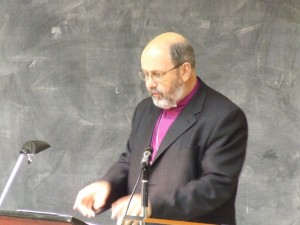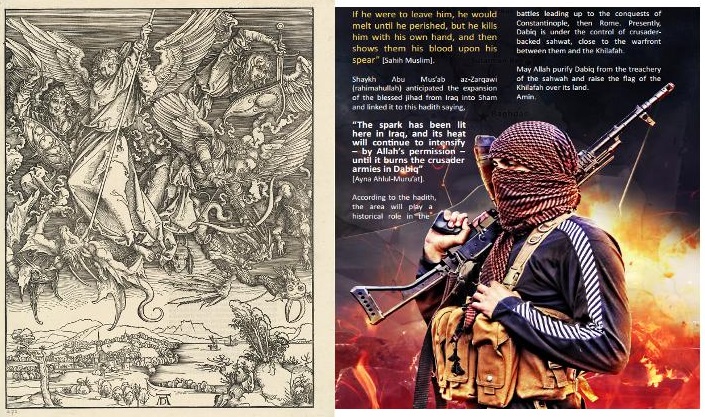
Larry Hurtado has roused blogospheric attention with his adverse evaluation of the N.T. Wright’s unconventional interpretation of what the early Church believed about the “second coming” of Jesus.
The Bishop of Durham has broached the idea before but Hurtado’s criticism his directed towards the relatively recent (2013) Paul and the Faithfulness of God. Wright contends that Paul’s teaching that God’s Spirit dwelt in the Church as his Temple could only mean one thing among Jews of Second Temple days: God had returned to dwell on earth with his people. God’s Temple was once again filled with the Glory of God. God, YHWH, had returned to his people in Jesus who was vindicated after the resurrection and that same YHWH now shed his glory on earth in the lives of the saints. Christ is the first to be resurrected and the rest of his brethren will be raised at his final appearance from heaven (the parousia). The (extended) day of that resurrection is now, but God’s promise to return to his people and dwell among them was fulfilled when he came in Jesus and continues now that he lives in his earthly temple, the church. This final event is merely seen as the completion of the renewal that has begun with Christ’s resurrection. Thus there is no “second” coming: God has fulfilled his promise to come to live with his people now.
Hurtado will have none of it. Christians (like Hurtado) are still waiting for the second coming just as Paul really taught their original generation. So deep is this belief furrowed into the mind of the conservative scholar that any contrary view must be bereft of all supporting evidence.
My own piece is a critical study of Wright’s claim that the earthly ministry of Jesus was seen from the first as YHWH’s “return to Zion,” . . . .
I judge his claims faulty, unsupported by the evidence.
Hurtado maintains that the long promised return of YHWH to Zion will be fulfilled in the second coming of Jesus. It was not fulfilled in his first visit. Continue reading “Hurting: Can Wright Be Right This Time?”

